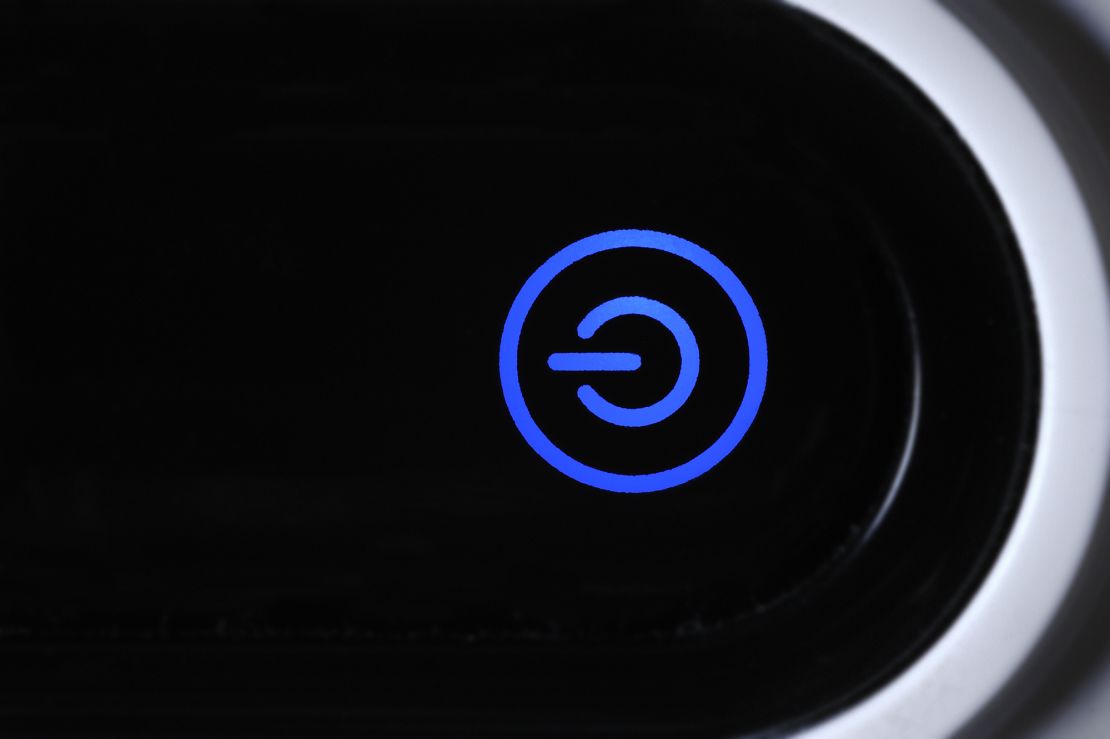For thousands of years, the nighttime’s daily darkness naturally told humans it was time to go to sleep. That’s an evolutionary principle embedded into our brains — and it becomes apparent for those who can’t peacefully slumber at night because of the annoying indicator light that’s part of many household electronics.
Countless devices and appliances — from surge protectors and televisions to headphones and laptops — often have a bright light that turns on when plugged in but can’t be turned off unless the product is unplugged. It’s a pesky bedroom nuisance.
“Exposure to light at night is a completely unnatural and alien experience,” Steven Lockley, a neuroscientist at Harvard Medical School’s Division of Sleep Medicine, said in author Paul Bogard’s 2013 book, “The End of Night,” which explores the effects of artificial light on society and health.
Not only are there more of those lights these days, but many are brighter than they used to be. Some manufacturers say indicator lights can sometimes serve a practical purpose. But the one thing that’s clear is that at bedtime, people looking to get some sleep just loath those difficult-to-ignore dots of light ruining the comforting darkness needed to get some shuteye.
For Kyle Moschen, a 27-year-old public relations professional based in Seattle, it almost looked like a starry night sky in the studio apartment he used to live in with his boyfriend, except it wasn’t beautiful like Vincent van Gogh’s famous painting, it was irritating.
Bright lights emitting from many sources — from the oven, an automatic fan, the fire alarm, an air purifier and a wireless phone charger — made it difficult for Moschen to sleep at night.
His solution: Tape those bad boys right up.
“I was looking around and I just kept noticing more and more and I felt so confused, like why are there so many lights?” Moschen told CNN. “I was like this crazy person putting these black strips of electrical tape on every little light.”
Amazon, among other retailers, stocks several different sizes and shapes of blackout, or light-dimming, stickers and sheets.
The solution looked a bit different for Jonathan King, a finance professional based in New York.
“I plug in my Logitech headphones and it’s a little blue light but I really have a hard time sleeping with any light on so I have to either wear a face mask or what I usually end up doing is putting a shirt over the headphones so I don’t see them,” King told CNN in an email.
The practical and aesthetic purposes of indicator lights
To put it simply, an indicator light just reflects the status of a device, and that varies from product to product. For example, an indicator light could show that a device is charging or plugged in and working properly. For Bluetooth devices, they’re necessary when pairing with a phone.
Those bright indicators are often LED lights. LED lighting is an energy-efficient option for manufacturing indicator lights. The light has a long lifespan and doesn’t generate excess heat — important qualities for a technology that’s used every day.
Blue LED light — a common indicator color but one particularly disruptive to sleep — was such an industry breakthrough that the 2014 Nobel Prize in Physics was awarded to physicists Isamu Akasaki, Hiroshi Amano and Shuji Nakamura for creating it.

Blue LED was introduced for commercial use in the 1990s. Amid a growing tech industry, blue LED offered a new, innovative color that gave consumer electronics a cutting-edge appearance.
“Sometimes those lights are on there just for aesthetic appeal, contributing to the gadget’s design, appeal and user experience,” David Loftus, president and chief executive of the Electronic Components Industry Association, told CNN.
Still, many manufacturers do without them. “A lot of times, some don’t have it because it is a very inexpensive device and the manufacturer has chosen not to spend a few pennies on putting an LED status light in it. Or, the devices are just really simple and don’t need it,” Loftus said.
Manny Linhares Jr., senior director of product management at Legrand, a French electrical equipment manufacturer, said the indicator lights of Legrand’s products are essential for functional, aesthetic and safety reasons.
“As a manufacturer, adding an LED light does cost something, so to add one just to add one seems quite wasteful. So in our case, it’s used purposely to enhance the user experience,” he said.
Linhares Jr. also said the lights can be helpful as night lights.
“We aim for the subtle lights to help a customer know where these devices are when the lights are off in spaces where the occupant isn’t familiar with the room, like in hotels you at least have that subtle light glow,” he said.
John Towfighi contributed to this story.
Read the full article here




